Brava is color, graphic design, creativity, and conscious decisions. It’s about good vibes, bold choices, and redefining the rules of the textile industry, while keeping our feet on the ground.
This is passion, not fashion.
Brava’s that friend who lifts you up, pushes you forward, and won’t let you step out in something that doesn’t spark joy.
And while we know we’re not perfect (who is?), we keep pushing boundaries, questioning the norm, and making sure that every piece we create adds something good to the world.
Here’s everything we did in 2024 to make the textile industry a little greener, one epic outfit at a time.
MATERIALS
We only work with suppliers who meet strict environmental and social standards, using globally certified materials from responsible farms and factories. Every fabric we choose follows rigorous criteria for sustainability and fair practices. We also keep a close watch on inventory to prevent overstock, producing only what’s needed, nothing more. Because our clothes are made to bring you joy when you wear them, not to gather dust in a warehouse, or worse, end up in a landfill.
Because plants deserve better skincare than we do 🌱
- Grown without pesticides or synthetic fertilizers
- Uses crop rotation and composting to keep soil healthy
- Supports biodiversity and improves soil quality
- Retains more moisture, meaning less water is needed
- Certified by internationally recognized sustainability standards
We don’t just talk organic cotton, we wear it. A lot. 🌱
- 83% of our garments were made with certified organic cotton(OCS)
- 41,467,760 liters of water were saved compared to conventional cotton (roughly 16.6 Olympic-sized swimming pools 🏊♂️💦 Michael Phelps' wet dream).
- Certified to be toxin-free and environmentally responsible
In 2024, we produced 93,438 garments, equal to 23.36 tons of organic cotton—that’s more than 10 rhinoceroses put together! 🦏🦏🦏
Because great fabric deserves a second chance ♻️
- Made from recovered fibers, excess fabrics or discarded garments
- Actively supports the circular economy, reducing waste and resource consumption
- Uses 90% less water and up to 90% fewer pesticides than conventional cotton
- Recycled cotton garment needs 375L of water, vs. 2,500L for regular cotton
- A total of 172,372 liters of water have been saved thanks to recycled cotton. That’s like taking 2,873 showers! If you shower once a day… that’s almost 8 years of keeping it clean. 😉
- Certified for responsible sourcing, supply chain traceability, and fair labor
In 2024, we produced 255 garmentswith recycled cotton, equivalent to 76.5 kgof material—because waste belongs in the recycling bin, not in fashion 👕♻️
Because warm and ethical should go hand in hand. 🐑
- 100% mulesing-free wool. We love sheep and prefer to keep their butts intact 🐑🍑
- Sourced only from certified merino sheep
- Ensures animal welfare and promotes responsible practices in the textile industry
In 2024, we produced 1,258 garmentswith mulesing-free merino wool, equivalent to 503.2 kg of wool.
That’s roughly the yearly fleece of 112 sheep! 🐑🐑🐑... (plus one that’s still working on its sweater). Or put another way: enough wool to keep an entire sheep army cozy—or at least really, really stylish. 😆
Because great wool deserves a comeback ♻️🐑
- Made from discarded fabrics, reducing the need for new animal resources
- Uses 40% less water per kilo than conventional wool
- 63,751,984 liters of water saved (that’s a whole lot of rain dances we didn’t need)
- Each garment saves 4,400 liters of water compared to conventional wool
- 60% energy savings per garment
- 100% natural fiber—biodegradable, compostable, and planet-friendly
In 2024, we produced 1,494 garments with recycled wool, equal to 597.6 kg (0.60 tons)—that’s 120 really fluffy sheep… or one sheep who’s been hitting the all-you-can-eat buffet a little too hard. 🐑😆
Turning trees into textiles—the responsible way 🌿
- Used in 12% of our garments (Saves 50% more water than conventional viscose).
- 8,404,950 liters of water saved—each garment needs 1,000L vs. 2,000L for conventional viscose
- 60% energy savings compared to traditional viscose
- Certified by Lenzing (Ecovero & Tencel) and Canopy for responsible sourcing
This translates to 49,127 kWh of energy saved—enough to brew 613,000 cups of coffee… or in Brava terms, enough to keep our team caffeinated for… well, a while ☕♻️
Turning yesterday’s trash into today’s threads ♻️
- Made from plastic bottles, old fishing nets, and recycled fibers
- Saves 40% more water per garment than conventional polyester
- Uses 40% less energy in production. (Each garment requires 4.8 kWh, vs. 12 kWh for regular polyester).
- 84,276,0 liters of water and 6,742 kWh of energy saved
- Certified for responsible sourcing, reduced impact, and full traceability
In 2024, we produced 2,928 garments with recycled polyester, equal to 878.4 kg of material.
That’s like stopping 44,000 plastic bottles from starting their dream life as microplastics in the ocean. Sorry, fish—this plastic is ours now 🐠♻️😎
Because landfill life isn’t glamorous ♻️
- Made from recycled materials instead of crude oil
- Uses 80% less energy than conventional polyamide
- Each garment requires 9.6 kWh, vs. 12 kWh for regular polyamide
- 524 kWh of energy saved—because waste shouldn’t come with an electricity bill
- Just as strong, durable, and versatile as the original
Last year, we made 273 garmentswith recycled polyamide, equal to 68.25 kg of material.
Sure, it’s not a mountain of fabric, but that’s 68 kg less waste sitting in a landfill, wondering what it did to deserve such a fate ♻️
SUSTAINABILITY IS IN THE DETAILS
At Brava, we don’t just care about what’s inside the box—we care about the box itself. That’s why we ditch plastics whenever possible and choose eco-friendly materials instead. And because keeping things local matters,
all our trimmings come straight from Spain and Portugal.
Less waste, fewer kilometers traveled, and packaging that’s just as responsible as what’s inside. Because sustainability isn’t just a big idea—it’s in the little things too.
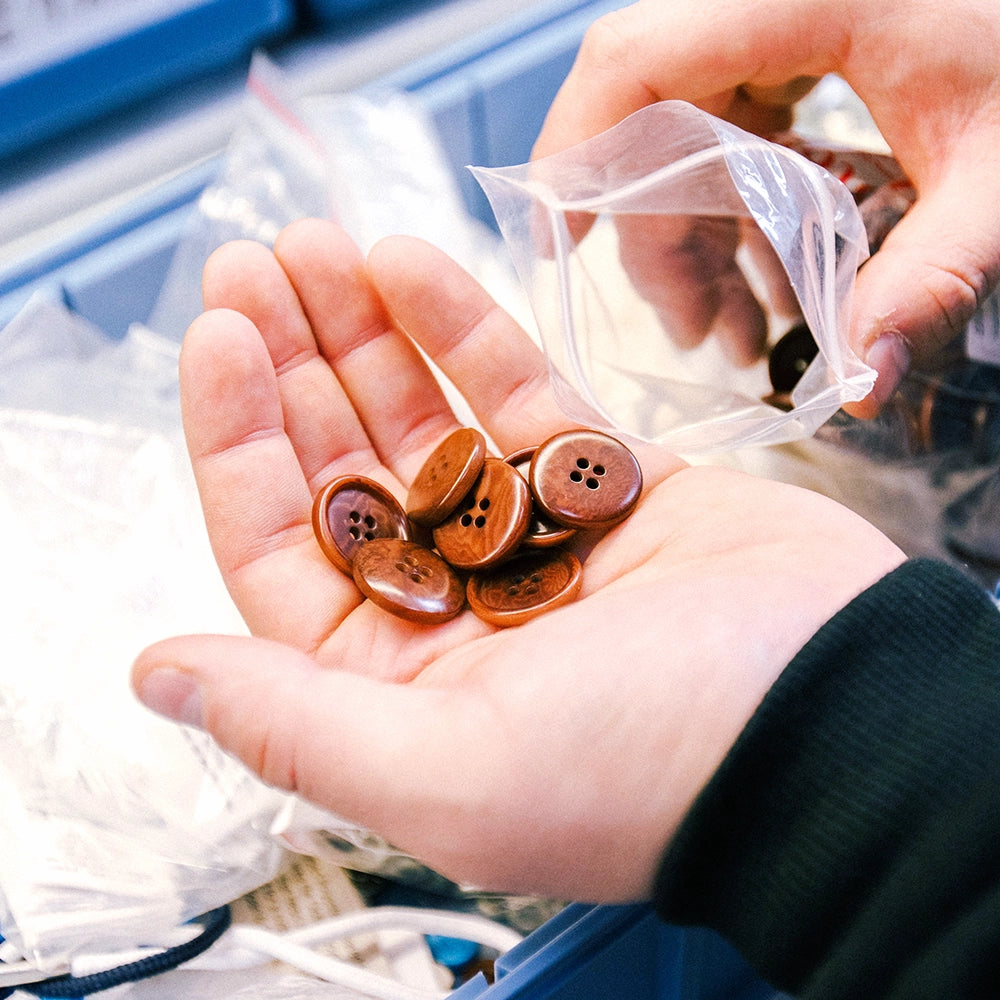
BUTTONS AND TRIMMINGS
Made from corozo—100% natural, biodegradable, and as classy as buttons get.
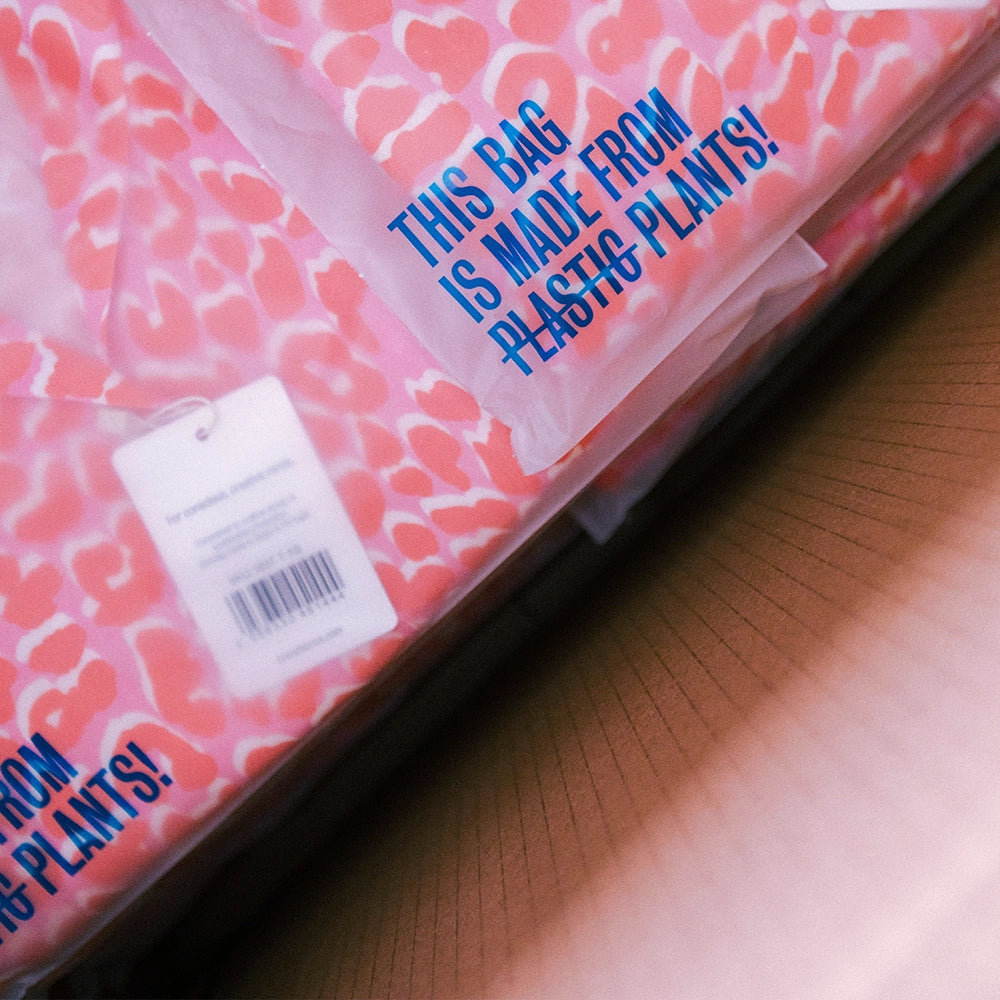
BAGS
Made from corn (yes, corn!) and is fully biodegradable. No plastic, no problem.
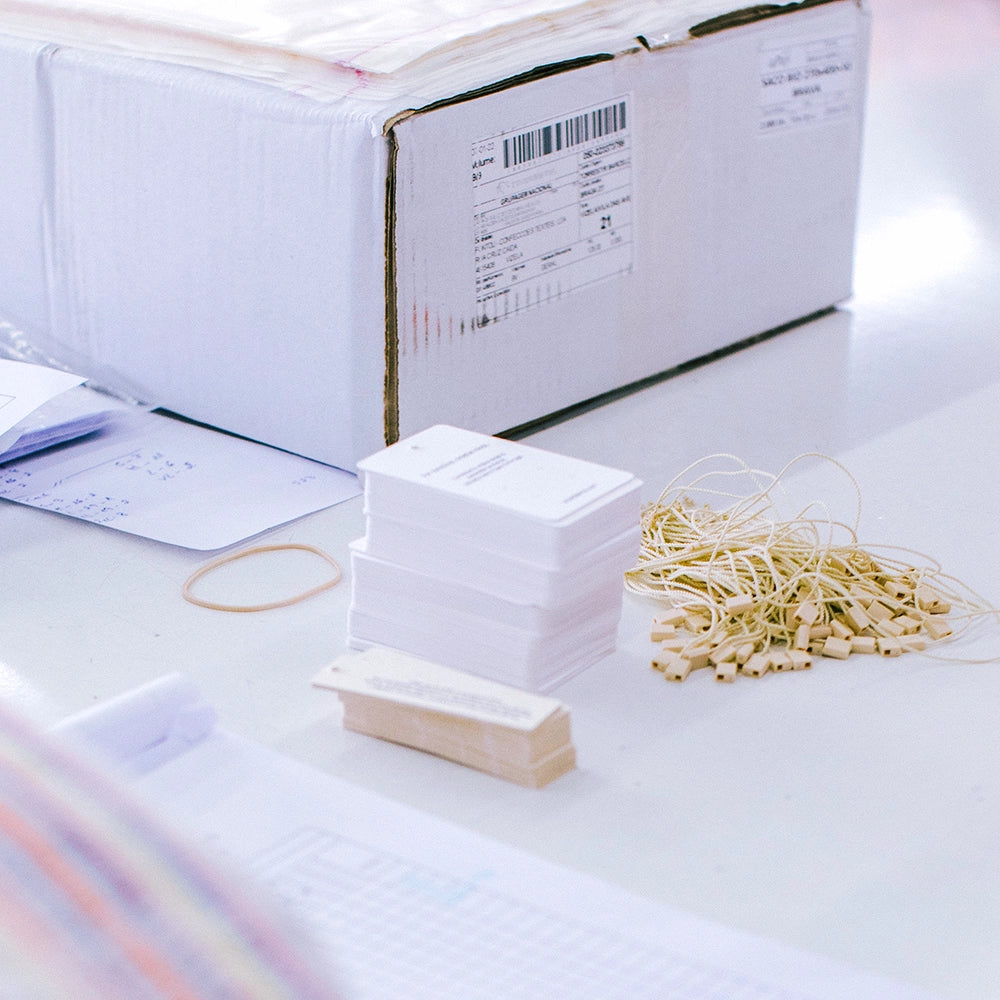
TAGS AND SEALS
Crafted from recycled paper, cotton thread, and just a tiny bit of recycled plastic(only where necessary).
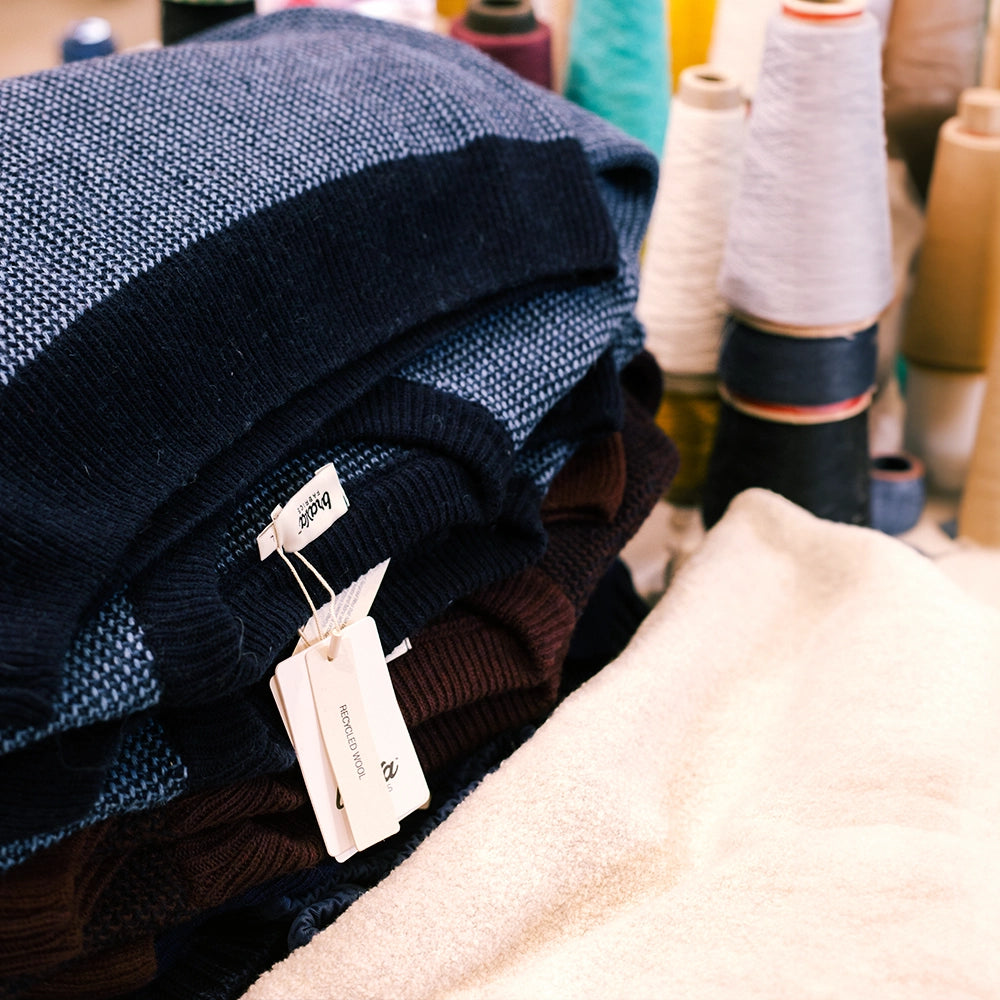
TEXTILE LABELS
Made with recycled polyester, because even the inside of your garment should be doing its part.
FACTORIES
At Brava, sustainability isn’t just about fabrics—it’s about people. We work closely with our suppliers, visiting factories 1–2 times a month to ensure fair conditions, safe spaces, and ethical treatment. Think natural light, reasonable hours, and respect at every level.
Every partner we work with signs our Code of Conduct—no exceptions. If a supplier doesn’t commit to fair labor, we don’t commit to them. Because a truly sustainable brand cares about the hands that make the clothes just as much as the clothes themselves.
As a result of the audits carried out in the factories of our suppliers, compliance with the following quality standards has been verified:
1. Traceability of recycled materials:
An effective ERP system for tracing products, recycled materials, and their calculation process is established.
2. Labor equity:
Good practices in equal treatment for workers have been verified, and processes are established to prevent discrimination.
3. Health and safety:
Adequate health and safety standards are maintained, from the provision of safety equipment to the adoption of rigorous protocols to maintain a safe and healthy working environment.
4. Environmental respect:
Environmental laws and regulations are complied with, and a commitment to maintaining responsible environmental practices is established, especially highlighting recycling and waste management.
5. Responsible management of organic materials:
Carefully designed procedures are followed for the segregation and correct identification of these materials, ensuring their proper and sustainable handling at each stage of the supply chain.
Each of the factories we work with signs a code of conduct in which they commit to complying with the following points:
1. Compliance with labor laws and regulations;suppliers must adhere to all applicable local laws regarding labor, business ethics, transparency, and environmental regulations.
2. Prohibition of child labor;there cannot be children under 14 years of age or below the legal minimum age working in the factories.
3. Prohibition of harassment or abuse; suppliers must provide a work environment free from harassment, abuse, or workplace punishment, ensuring respect for the rights and dignity of workers.
4. Prohibition of forced labor; suppliers must ensure that all work is voluntary and free from any form of coercion, including forced labor.
5. Compensation and benefits; suppliers must comply with local laws regarding wages, including payment for overtime and holidays, and provide all legally mandated benefits.
6. Working hours; should not exceed legal limits with at least one day off each week. they must provide a safe and healthy work environment, including clean drinking water, medical resources, safety equipment, and adequate training.
7. Prohibition of discrimination; employment decisions must be based solely on an individual's ability to perform their job, without discrimination based on personal characteristics, beliefs, or gender.
8. Health and safety; they must provide a safe and healthy work environment, including clean drinking water, medical resources, safety equipment, and adequate training.
9. Freedom of association and collective bargaining; they must respect employees' rights to free association and collective bargaining, without discrimination.
10. Environment; they must comply with environmental regulations and demonstrate a commitment to environmentally conscious practices, including energy and water usage, chemical emissions, and waste management.
11. Customs compliance; they must adhere to customs laws, including accurate labeling and maintaining records for all materials and orders.
12. Security; they are responsible for maintaining security procedures to prevent the introduction of undeclared cargo in shipments.
Planes? No thanks. We keep it grounded.
We ship everything by land and sea, skipping air transport—the most polluting option. Most of our suppliers and factories are nearby, so distances stay short, and emissions stay lower. Because sustainability shouldn’t take a backseat, even in transit 🚛🌍

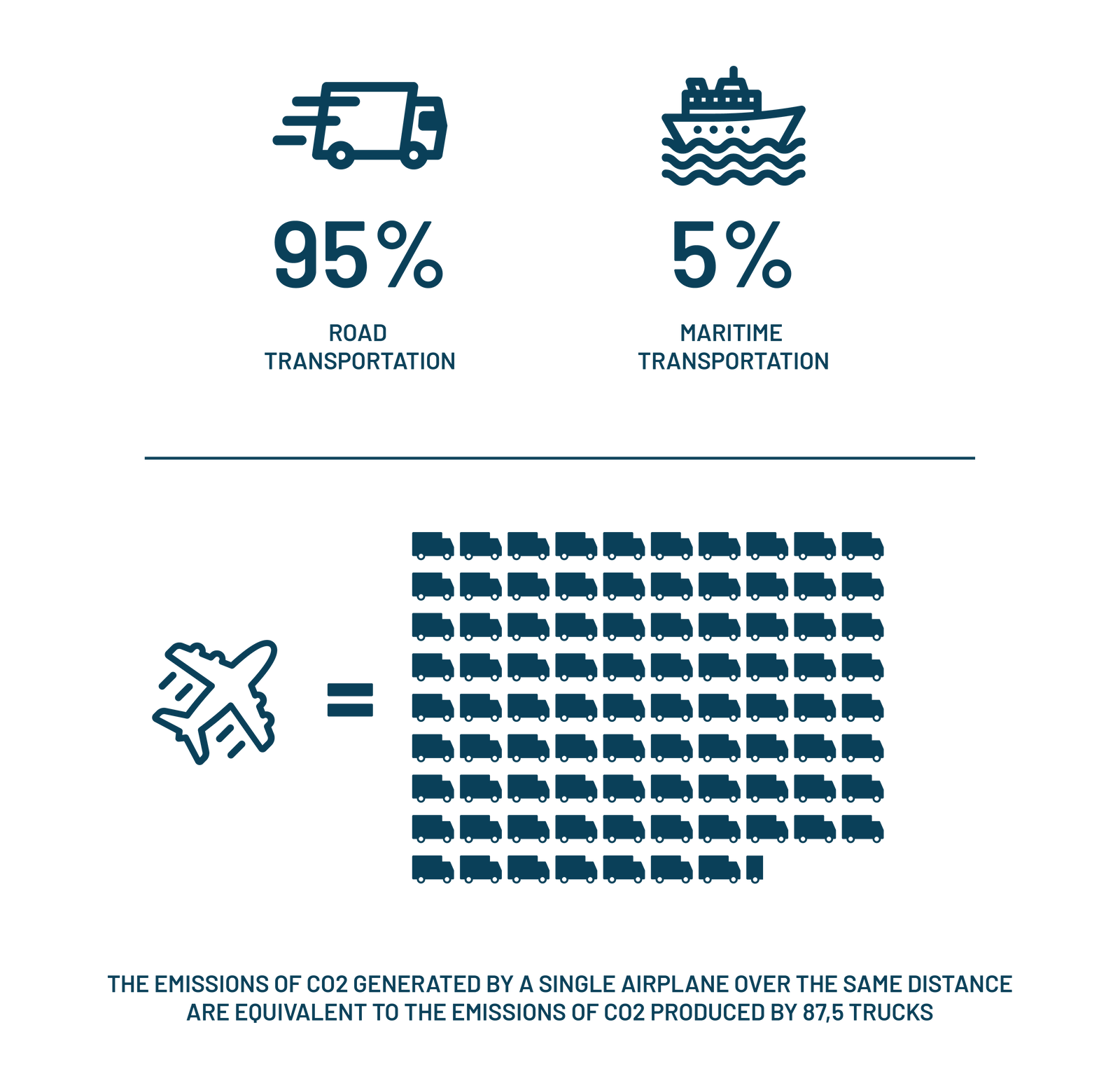
Since March 2023, we have been a B Corp-certified company. This means that we meet high standards of transparency, accountability, sustainability, and social performance. The B Corp certification is proof that we work with a purpose and that, with our ongoing commitment, we seek to make a positive impact on the world.
From the choice of our materials to the final product, we monitor and improve every possible aspect of our supply chain. With respect and transparency, values that drive us, we have come to where we are now, proudly sharing our sustainability report. However, we know that we are not perfect and we take this challenge very seriously, so we are constantly striving to improve and achieve higher levels of sustainability and responsibility in every aspect of our business.
SUSTAINABLE DEVELOPMENT GOALS
As a reference, we focus on the goals established by the United Nations, which represent the sustainable development we would like to see in the world. All sustainable development goals are equally important to us and are an excellent way to focus our efforts on what truly matters.

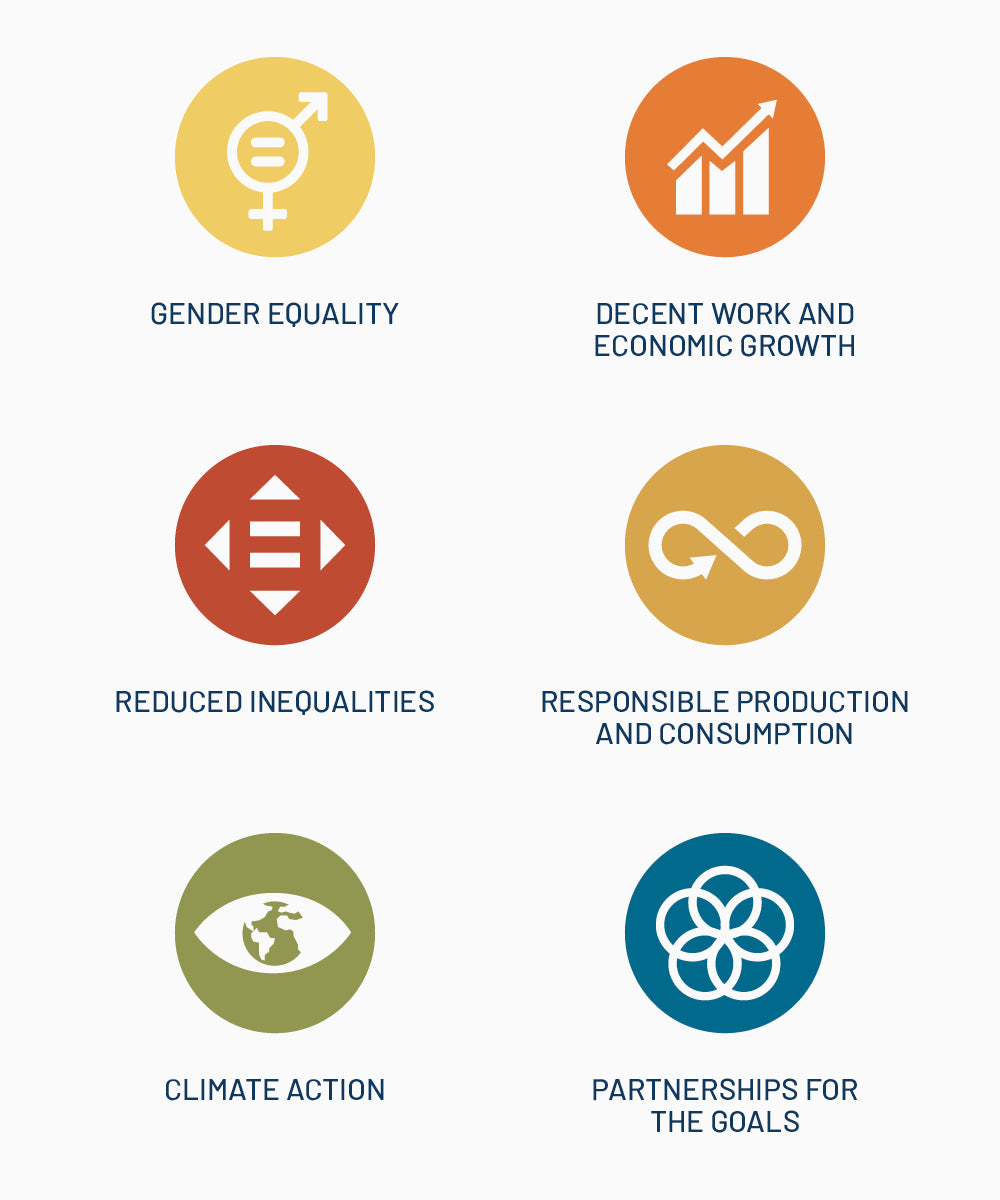
OUR COMMITMENT
Sustainability isn’t a trend or a buzzword—it’s how we do things, day in and day out. From our suppliers to our team, our stores, and you, we’re all part of the same movement: making choices that actually matter.
As we grow, one thing stays the same, respect. Respect for the people who make our clothes, for the planet that provides our materials, and for the work behind every piece we create. Because style with no respect? That’s just fast fashion with better PR.
Buying better is important. But taking care of what we already have? That’s the real game-changer. True sustainability isn’t just about what’s new, it’s about making things last.
Brava Fabrics Team























